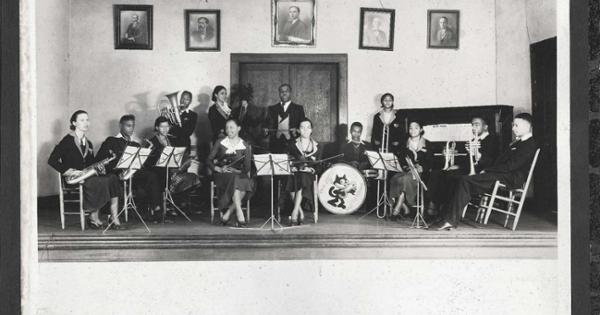After weeks of working with sources covering over a century of the area’s past, East Tennessee State University students will present their research on the history of Johnson City’s Black community.
The event happens Tuesday from 4-8:30 p.m. at the Langston Centre, located at 315 Elm Street in Johnson City.
The research was conducted by students in the Department of History’s historical methods course, a class required before history majors can take upper-level courses. The students mined a wealth of historical information about Black churches, schools, civic clubs and organizations in Johnson City and Washington County from the end of the Civil War to the present.

The Archives of Appalachia recently digitized the project, and the work is available to anyone online.
“Not only have we invited students, faculty and staff from ETSU, but the Langston Centre has reached out to the local community, among them many Black Americans, who will join the event as audience,” said Dr. Constanze Weise, an assistant professor of history, who taught the course this semester. “Not only do we hope that the research the students did will contribute to a better understanding of the Black community during the time of Jim Crow, but it will hopefully also lead to a dialog with community members in the question-and-answer session after student presentations and during the various breaks.”
Tuesday’s event, one of dozens held by the university this semester aimed at community engagement, is sponsored by ETSU’s Department of History and Black American Studies program, as well as the Black-owned Johnson City restaurant, Cranberries.
“There is a lot of history that still needs to be uncovered. From the Roan Hill school to once-thriving homes and community buildings, much of the physical history of Johnson City’s Black life has been lost as Johnson City has developed, but stories and artifacts may still be out there waiting to be found that can help keep the memory of an important part of Johnson City’s history alive.” said Weise. “This event will raise awareness about important historical topics and bring student engagement to the local community as well as involve the community in what the history department at ETSU is doing.”
 Stout Drive Road Closure
Stout Drive Road Closure